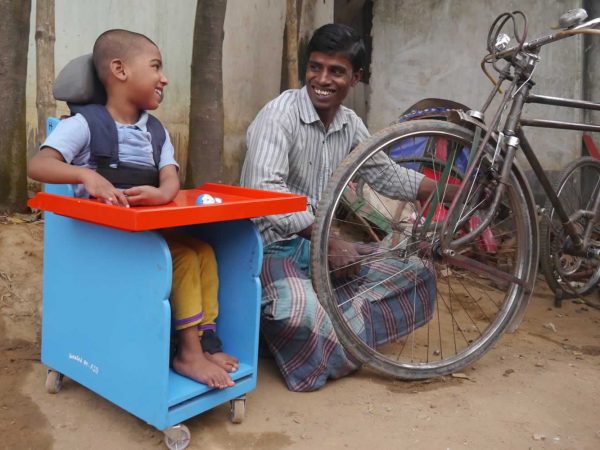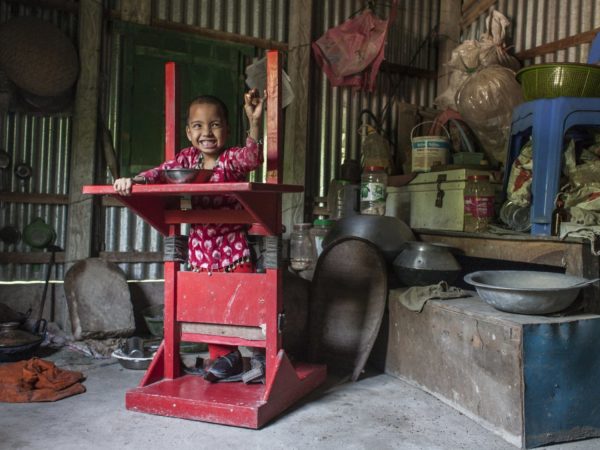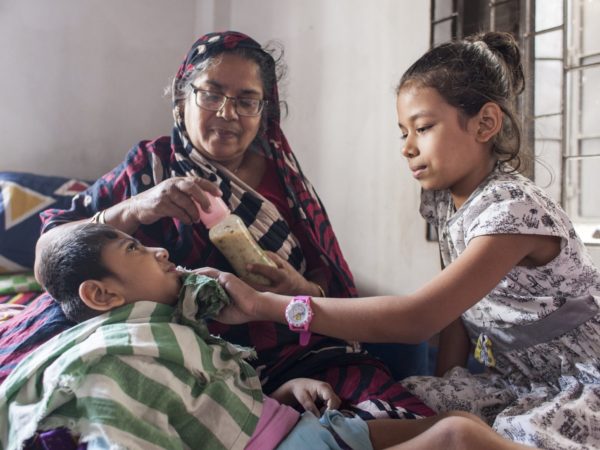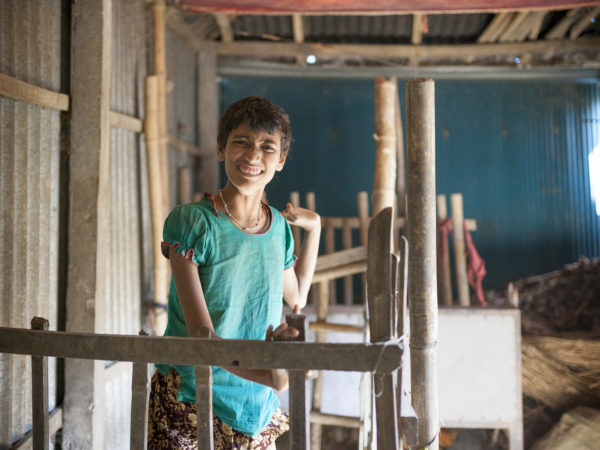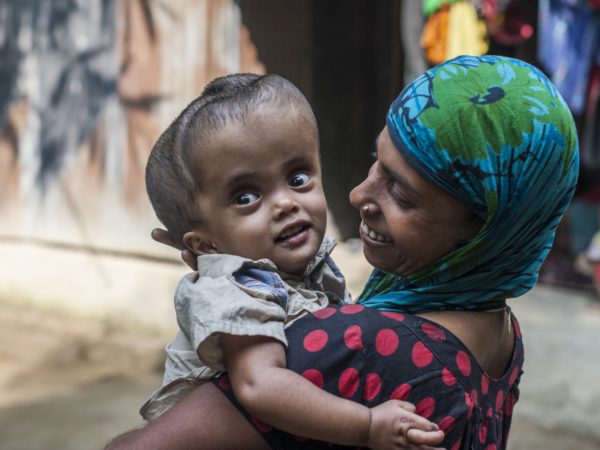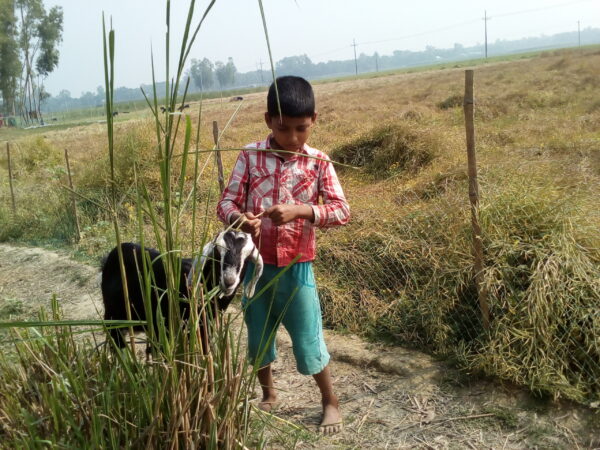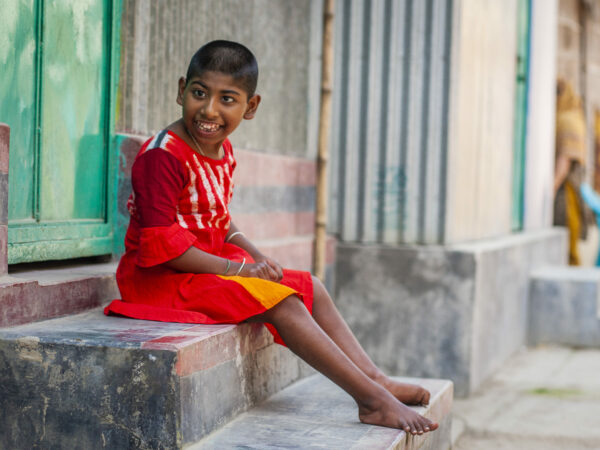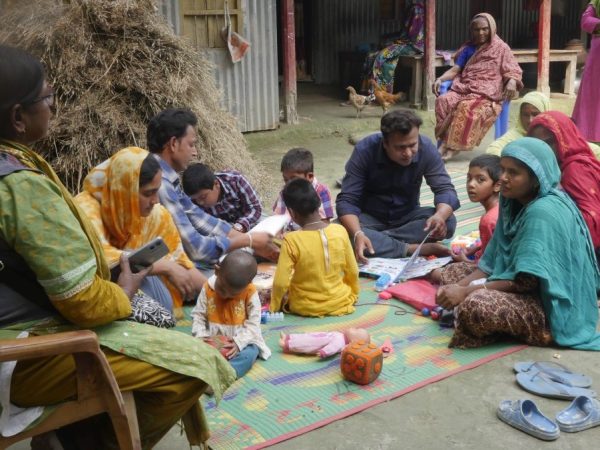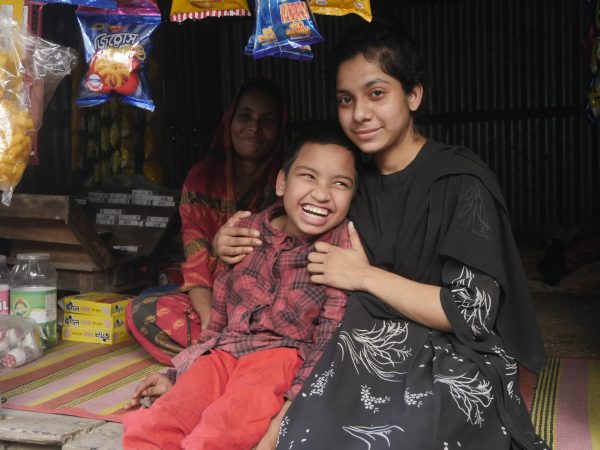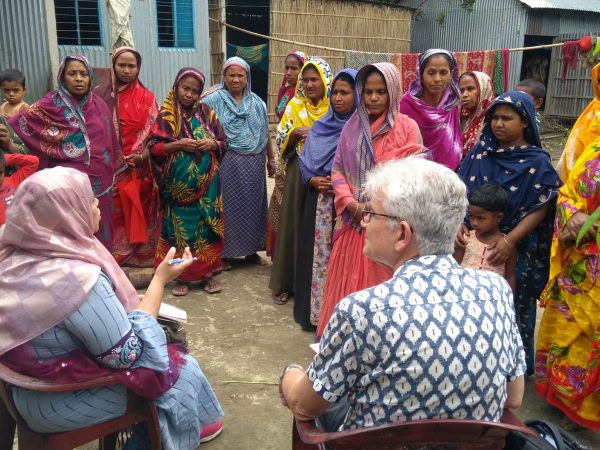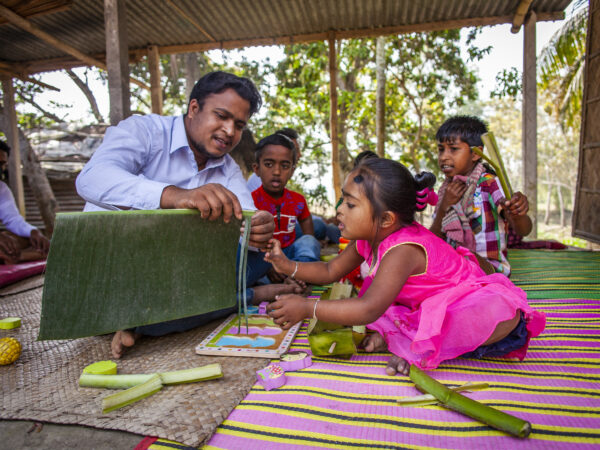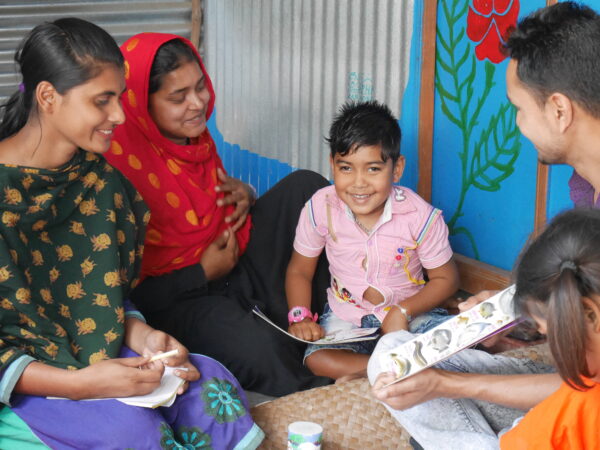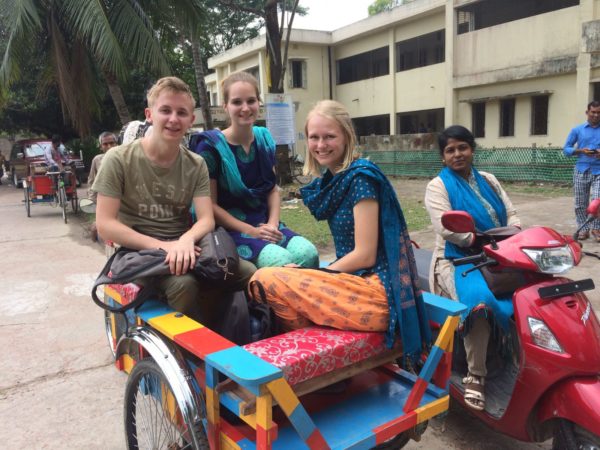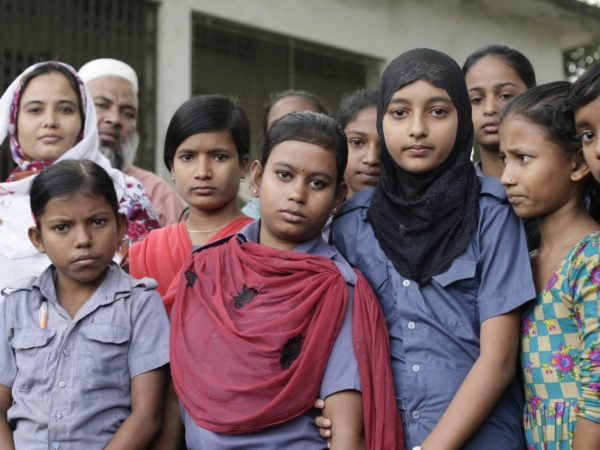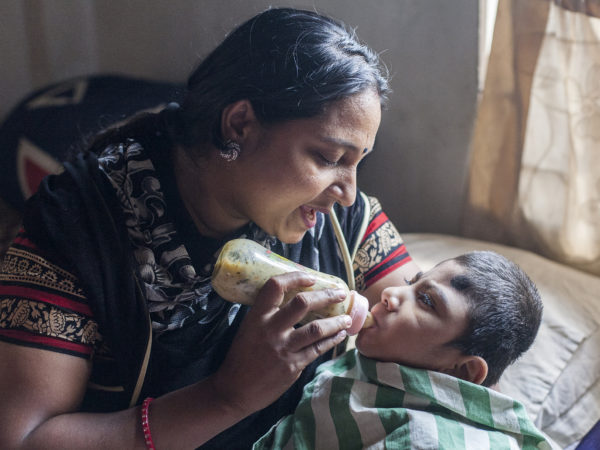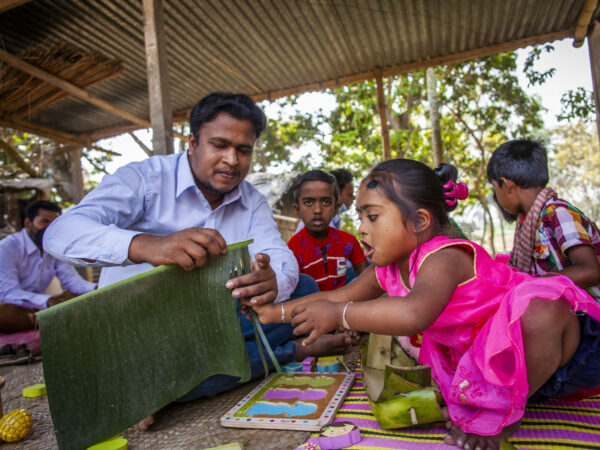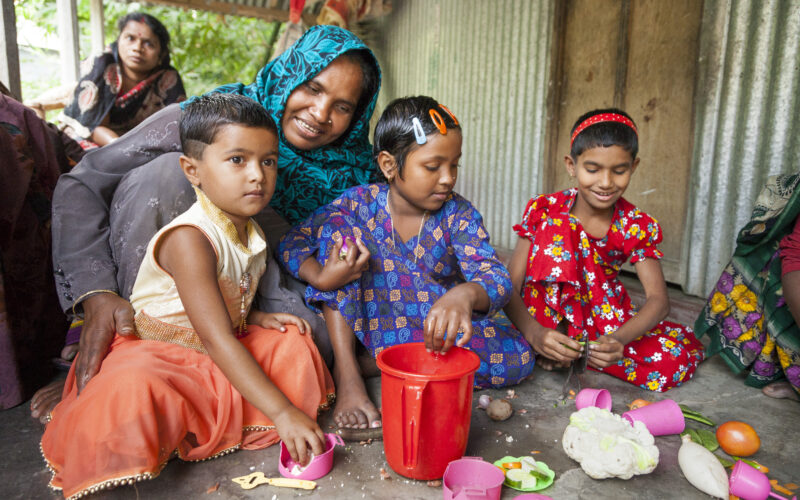Project Community care
Since 2013, in the upazilas Ghior and Daulatpur Niketan has organized ‘veranda schools’ in several villages. The unique aspect of our veranda schools is that they are organized on the verandas of local people’s houses; sometimes at the homes of parents of children with disabilities and sometimes at their neighbors’ homes or those of influential members of the community.
This means that the costs of our veranda schools are minimal and it is the community itself that is responsible for organizing and continuing the centers. Most veranda schools are located about 15 km from a rehabilitation center, but some are located 25 km away or more. A veranda school is open once a week and on average about 10 children attend, of various ages and with various disabilities and needs.
The community care program has grown organically over the years. For example, we involved more and more community groups in our program. We trained pharmacists and staff at local health centers and began to work closely with mainstream education. Parent groups serve as ‘the voice of children with disabilities’ and operate as activists who seriously lobby for inclusion and better services for children with disabilities.
In 2023, we opened two community schools and volunteers became more involved in carrying out our work. At the request of the hospital in Daulatpur, we have been offering physical therapy there three days a week since 2023. The needs of the children and their parents and the issues they face are always leading and so more and more stakeholders get involved.
Volunteers
Our 120 volunteers play an important role in raising awareness in the community. Whereas in the past many people thought they themselves would become ‘possessed’ when they came in contact with people with disabilities, the volunteers proved the opposite. A volunteer (mostly high school and college students) spends one to two hours a week with a child with a disability. He or she plays with the child, relieves the mother and supports the family. The volunteer also takes the child outside, allowing the child to meet other people. This helps to reduce the negative stigmatization for the entire family.
Practical assistance at home
In addition to the 20 veranda schools, we also provide practical assistance at home to 59 children. These are children who attend mainstream education and only need physical therapy, children with complex disabilities who no longer attend a school or veranda school, and children who are temporarily unable to attend school due to family circumstances. The care is practical, focused on what the child and family needs in the home situation.
Future
Although the community care program is relevant and of good quality, the conclusion must also be drawn that we will only be effective if in addition to children we start to focus more on adults. Many caregivers – often grandparents because the children’s parents have entrusted their children to their care – worry about the children’s future if they are no longer able to care for them. That is why in 2024, Niketan wants to support young adults into work and monitor this closely.
We also need to focus in the coming years on making the project financially sustainable in such a way that it becomes part of existing public services.
Read our evaluation report or ‘learning brief’ of this project or learn how we involve our children in inclusive education?

